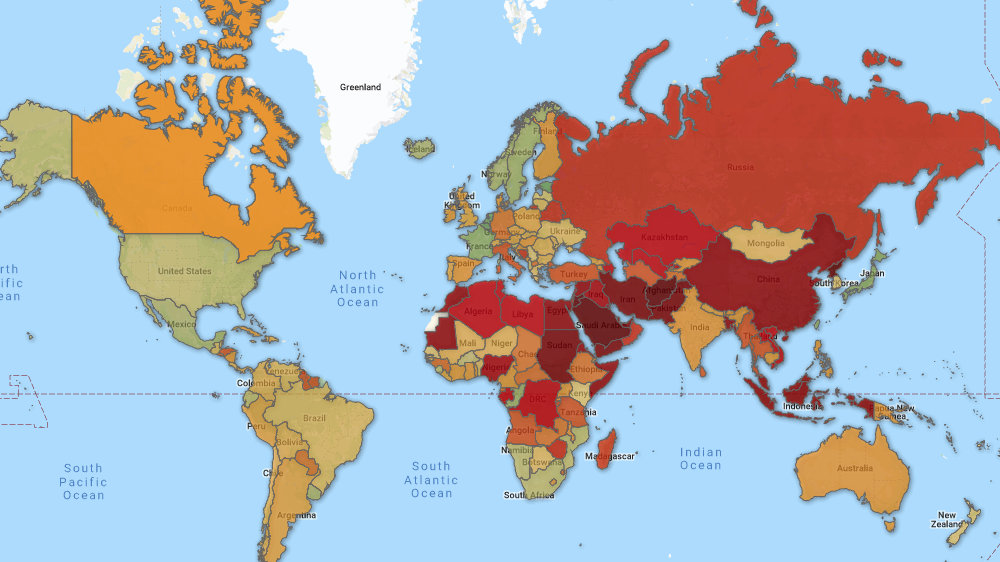
It is important that Ireland completes the process of removing the crime of blasphemy from our laws as well as our constitution. The Bill designed to do this is currently at the Office of the Attorney General for formal drafting.
A report published today on the human rights of non-religious people warns the world is divided on blasphemy and apostasy laws, with many states still enforcing these laws, and several states actively tightening or introducing new ‘blasphemy’ legislation in the past few years.
The annual Freedom of Thought Report is published by Humanists International, of which Atheist Ireland is a member. Now in its eighth annual edition, it examines the legal and human rights situation for “humanists, atheists and the non-religious” around the world.
Ireland is rated as having systemic discrimination, and is placed 115th out of 196 countries.
Ireland has systemic religious privilege including religious oaths that prevent conscientious atheists from being President or Taoiseach or a
The best countries for atheists and humanists are Belgium, Netherlands, and Taiwan; followed by France, Japan, Nauru, and Sao Tome and Principe. The worst countries are Saudi Arabia, Iran, Afghanistan, Maldives, Pakistan, and United Arab Emirates. These are multiples of times worse than Ireland in terms of human rights violations.
The 2019 edition celebrates the fact that eight countries have actually abolished ‘blasphemy’ laws in the past five years. But it also warns that 69 countries still retain such laws, and that their penalties and prosecution are hardening in a number of states. States such as Saudi Arabia and Pakistan are noted as “perennial” blasphemy prosecutors.
Despite the well-publicised release of Christian farm-worker Asia Bibi, the ongoing imprisonment of several accused atheists and many others in Pakistan, as well as extrajudicial violence against both humanists and religious minorities related to blasphemy accusations is condemned.
The Report also highlights a deterioration in other countries. Both Brunei and Mauritania have actually increased the penalties for ‘blasphemy’ and ‘apostasy’ in the past two years. Brunei’s new 2019 penal code renders blasphemy and apostasy, as well as other hudud crimes such as adultery and homosexuality, punishable by death. Mauritania introduced a mandatory death sentence for blasphemy and apostasy in April 2018.
High-profile ‘blasphemy’ prosecutions are cited as cause for concern in Indonesia, as is the backlash against demonstrators protesting forced hijab in Iran, and prosecutions and inter-communal violence related to Hindutva beliefs demonstrates a deteriorating situation in India. Europe does not entirely escape criticism, despite the overall positive trend in the region, with Italy and Spain singled out for prosecutions against artists and protesters in recent years.
Humanists International president Andrew Copson comments:
“Blasphemy and apostasy laws are an injustice in themselves, but they also lend a false legitimacy to those who commit acts of murder and terrorism in their name. As our report notes, when governments prosecute under these laws it only exacerbates the problems of religious extremism. Repealing these laws as per the human rights treaty obligations that nearly all countries are signed up to must be a priority. It will not solve all the various other forms of discrimination against humanists and other religion or belief minorities that our report documents. But it will begin to de-legitimise the religious extremism that threatens so many societies across so much of the planet.”